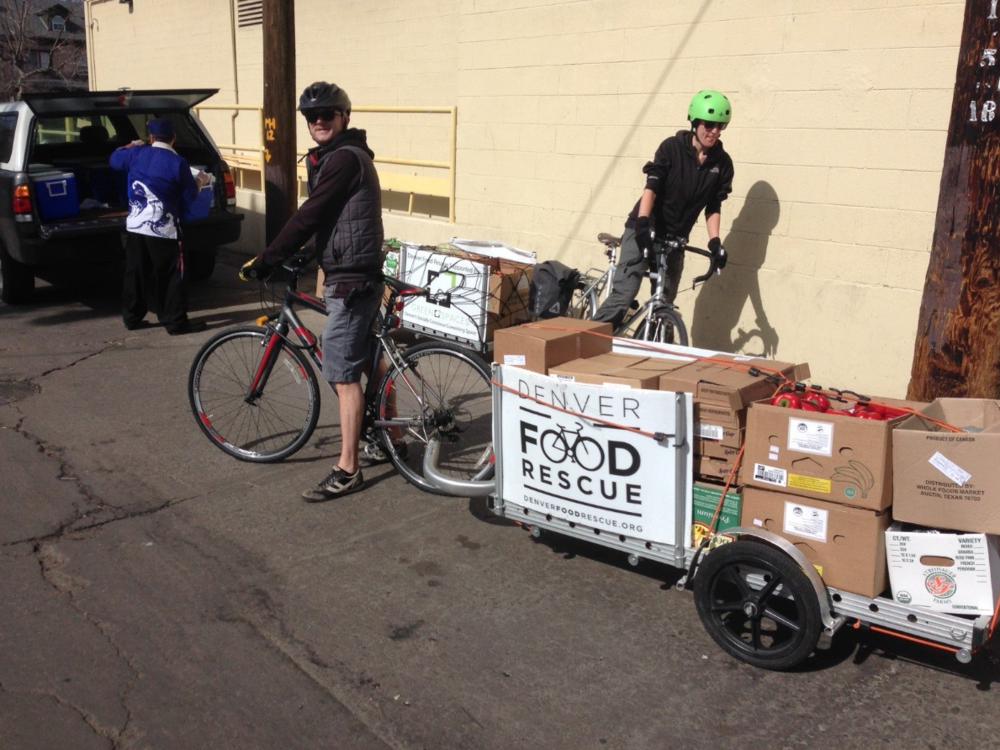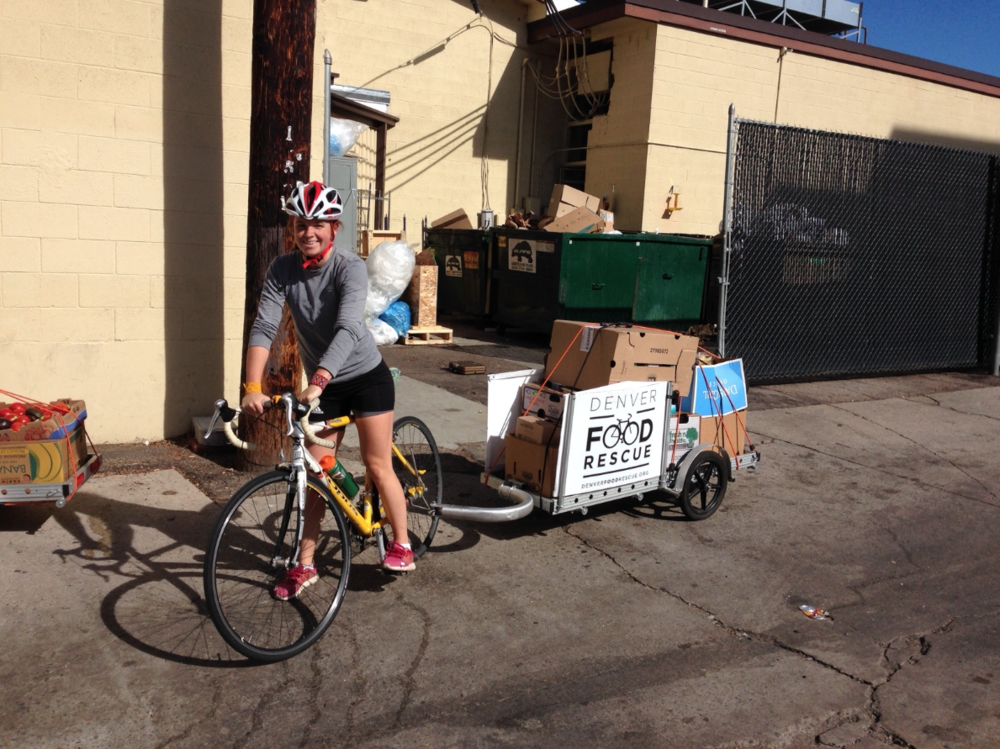Good Food to the Rescue
These Denver nonprofits rescue and redistribute fruits and veggies in the city’s food deserts—and food swamps.
By Sonia Christensen
 Photo courtesy of Denver Food Rescue.Arlan Preblud started We Don’t Waste in 2008. He saw a gap between the number of people Denver nonprofits were feeding and the number of people they could be feeding, and came up with a solution. Preblud began contacting both restaurants and nonprofits—such as Urban Peak, Sobriety House, and the Denver Rescue Mission—to see if the food one group was wasting could be redistributed to the others.
Photo courtesy of Denver Food Rescue.Arlan Preblud started We Don’t Waste in 2008. He saw a gap between the number of people Denver nonprofits were feeding and the number of people they could be feeding, and came up with a solution. Preblud began contacting both restaurants and nonprofits—such as Urban Peak, Sobriety House, and the Denver Rescue Mission—to see if the food one group was wasting could be redistributed to the others.
We Don’t Waste started as a one-man operation. Preblud used his own Volvo, seats down to create as much room as possible, to pick up food from catering companies and deliver it. In the first three months it was active, We Don’t Waste provided 75,000 servings. A serving is a single meal component, such as an apple; three different servings equals one meal. In January 2016, it collected more than 1,000,000 servings.
Approximately 30-40 percent of edible food in the U.S. gets thrown out every year. That adds up to about $165 billion in food waste annually, according to a 2012 study by the Natural Resources Defense Council. Meanwhile, about one in nine people worldwide lack sufficient food to live a healthy lifestyle—and in the U.S., 14 percent of households had low or very low food security in 2014. In Colorado alone, 13.6 percent of households are considered food insecure, which the USDA defines as having limited or uncertain availability of nutritionally adequate and safe foods, or limited or uncertain ability to acquire acceptable foods in socially acceptable ways.
This availability gap is what organizations like We Don’t Waste seek to change. On its website, We Don’t Waste lists 51 organizations it donates to.
Beacon Place, which provides transitional housing for those experiencing homelessness, is one such organization. The weekly donations Beacon Place receives help it manage its overall budget. Residents enjoy the food, too. According to Kelly Sullivan, Beacon Place program manager, the transitional program “is lucky to have some of the best food around, not only because of the cooks on staff, but also because of the donations from We Don’t Waste.”
Like We Don’t Waste, Denver Food Rescue focuses on food redistribution. Both organizations collect food from places like grocery stores, restaurants, farms, or catering services and take it to designated sites or organizations that make it available to those who need it.
Denver Food Rescue is an offshoot of Boulder Food Rescue, a food redistribution nonprofit that began in 2012. The program uses bicycles to transport fresh fruits and vegetables from grocery stores and farms to no cost grocery programs: sites like GrowHaus, where people come and pick up food for free (similar to a food bank). Though DFR helps set them up, the no cost groceries are run by volunteers who live in communities that have a high number of families and individuals in need.
Many of these communities exist in food deserts, which Amy Moore-Shipley, development and marketing coordinator at DFR, described as at least a one-mile radius that lacks a full service grocery store. Some of the communities are in food swamps: areas saturated with convenience stores and fast food restaurants, but with little to no healthy food options. In both types of areas, it is not only the quantity of food available that’s a problem—it’s the quality.
That’s why Denver Food Rescue focuses primarily on providing fresh fruits and vegetables. According to Moore-Shipley, traditional food banks don’t typically have fresh produce because it goes bad quickly. Denver Food Rescue is able to collect and redistribute produce because, in most cases, the food collected ends up on someone’s table that same day.
 Photo courtesy of Denver Food Rescue.“It’s about empowering the community to demand better food,” Moore-Shipley said, and community is a big part of what DFR is all about. All of the no cost grocery programs that it partners with are run by members of the communities that it serves, ensuring that DFR only operates in areas where its involvement is welcome.
Photo courtesy of Denver Food Rescue.“It’s about empowering the community to demand better food,” Moore-Shipley said, and community is a big part of what DFR is all about. All of the no cost grocery programs that it partners with are run by members of the communities that it serves, ensuring that DFR only operates in areas where its involvement is welcome.
Though both Denver Food Rescue and We Don’t Waste are successful at what they do and have experienced much growth over time, they still face difficulties. According to Preblud, one of the biggest challenges that We Don’t Waste faces is distributing the food it collects in time. “Right now, everything we pick up today we distribute today, so that’s a challenge.”
It’s the ability to overcome that challenge that makes both of these organizations unique. Because they collect and distribute their donations within a day, they are able to provide food that is fresh and high quality, a service that is rare, and much appreciated by those in need. ■
